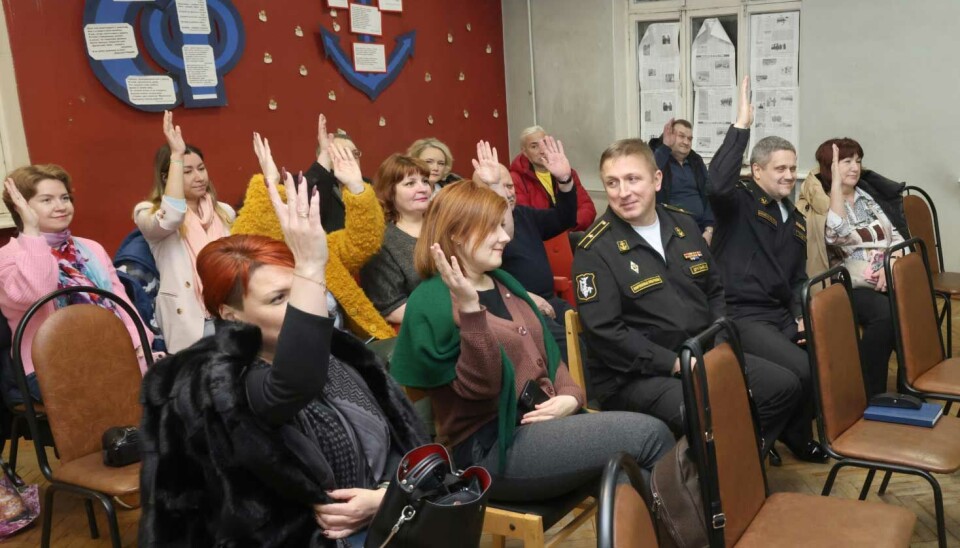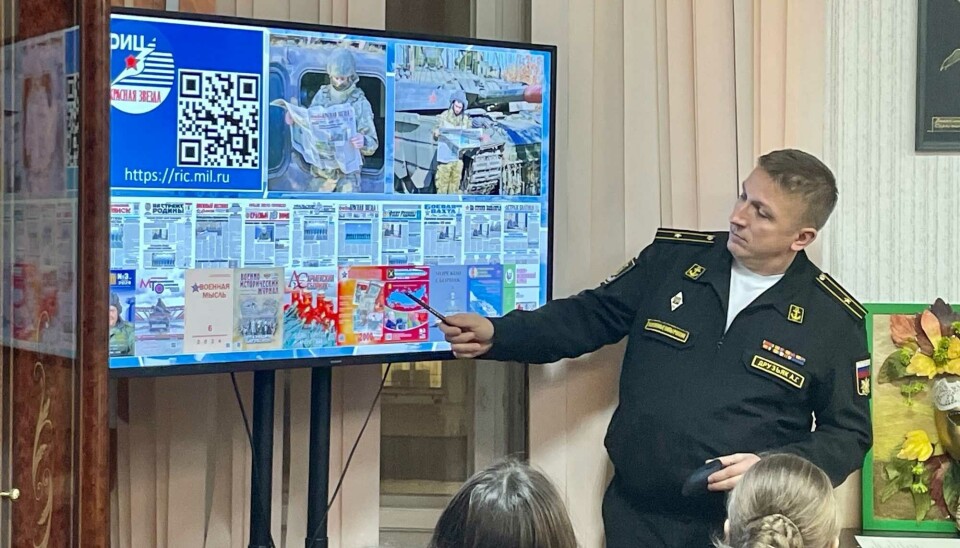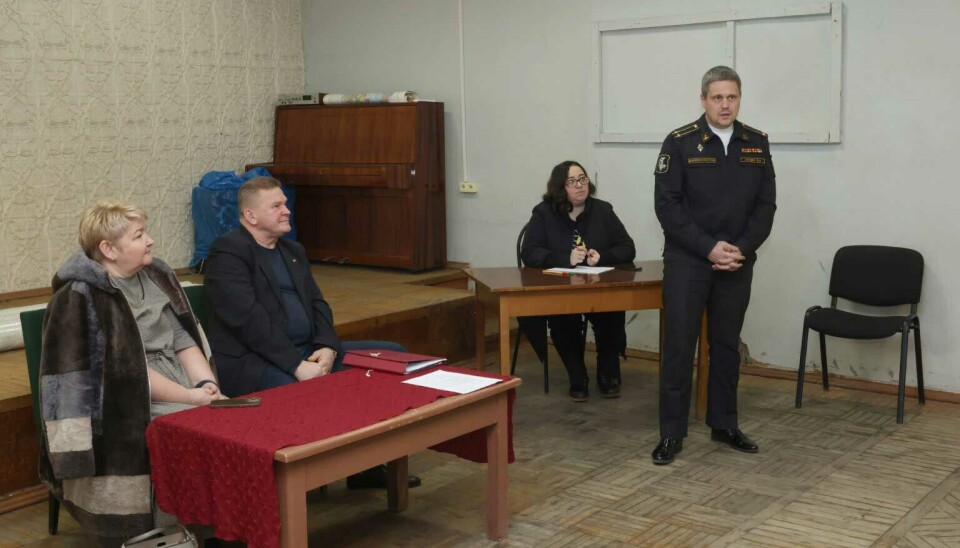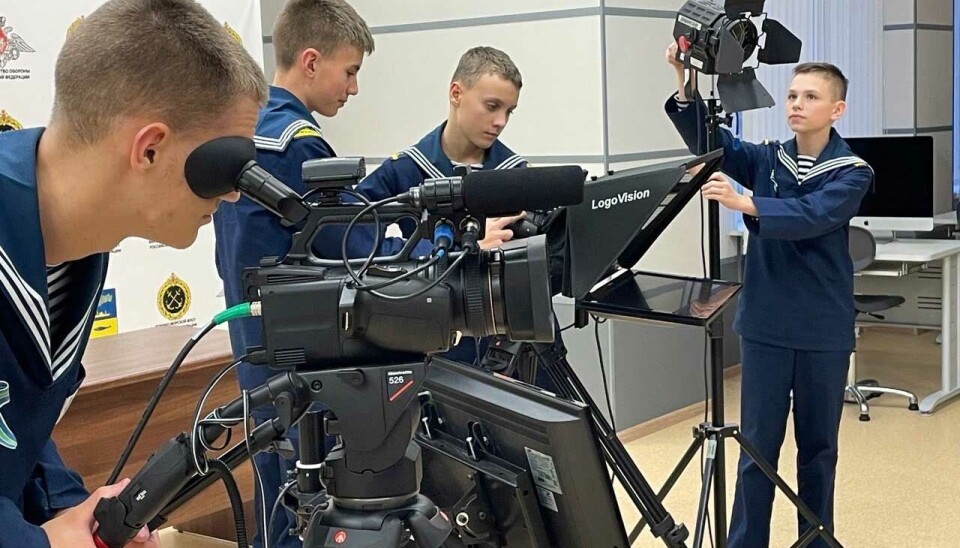
From the battlefield in Ukraine to the Murmansk Journalist Union
Aleksandr Druzyak served on Northern Fleet submarines and fought in Syria before he went to occupied parts of Ukraine as military reporter. This month, he was appointed new board member of the Murmansk Journalist Union.
Like most of the journalists in newspaper Na Strazhe Zapolyaria, Aleksandr Druzyak is a military man. Less than one year ago, he still served in a Northern Fleet unit. He has experience from service on diesel-engined submarines and fought in Russia's war in Syria.
He also has experience from "solving state missions in an international format," he said in an interview.
Over the past year, Druzyak has replaced his gun and submarine with a computer and a newsroom.
But he is still in combat mode.
He is now working as deputy editor of Na Strazhe Zapolyaria, the newspaper owned and run by the Northern Fleet.

During fall 2024, he worked as war reporter on occupied Ukrainian land and published several articles about the involvement of north Russian units in the fighting. One of them is about retired nuclear submarine captain "Oleg P" who decided to sign up for war. Another is about "Grigorii," a soldier fighting under the call sign "Leps" for a Northern Fleet motorised rifle brigade.
"I am proud that my experience is values and can be applied in the newsroom of one of the oldest publications of the ministry of defence," Aleksandr Druzyak says in an interview.
The experiences of the 3rd Rang Captain is also valued by the Union of Journalists in Murmansk. This month, Druzyak was elected new member of the Union board.
The candidacy was proposed by Vladimir Levchuk, the former editor of Na Strazhe Zapolyaria, and unanimously approved by members, the Journalist Union informs.

In a comment to the Barents Observer, the Na Strazhe Zapolyaria says that "the role functions of a member of the Union are determined by the organisation's statutory documents [and that] Alexander Druzyak will simply be involved in the public life of journalists and able to take part in the work of the organisation."
"Journalists are elected, not appointed, to the Union of Journalists of Russia, which is a public association and a creative community of journalists," the newspaper explains in an email.
According to Na Strazhe Zapolyaria, journalism in the Kola Peninsula is not much different from in other Russian regions.
"As for the activities of journalists in the Russian North, they are not very different from any other region of the country and are related to the coverage of ongoing events and phenomena and taking into account modern realities."
The appointment of Druzyak to the Journalist Union board is symptomatic for the current militarisation of Russian journalism. Mounting propaganda is produced and disseminated by the Russian Army and other militarised structures.
At the same time, a growing number of students and young people at military schools are trained in military journalism and propaganda.














